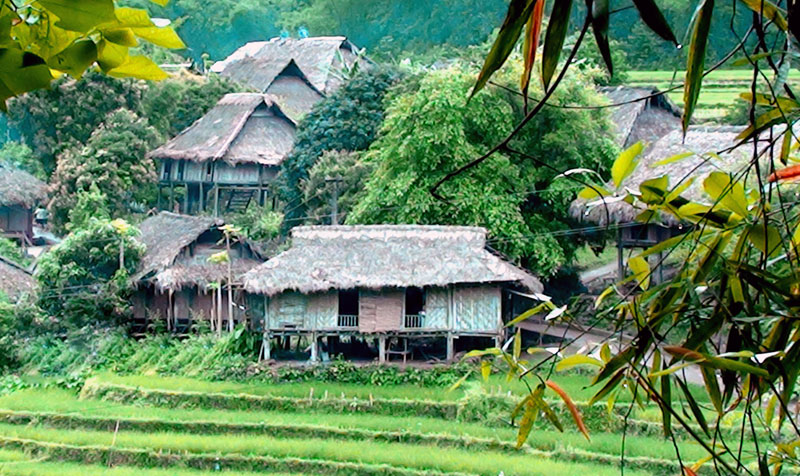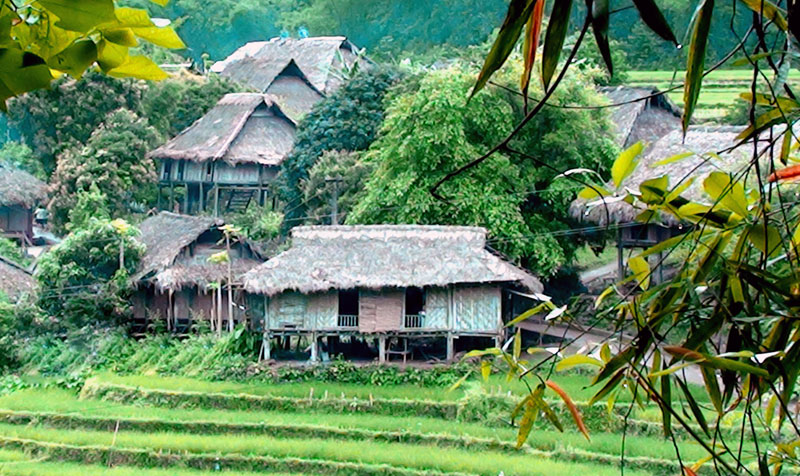


With sticky stilt houses, being surrounded by bamboo ranges, terraced fields, rustic and sincere people have created an impressive and unique Muong village, attracting a lot of tourists.
 Giang Mo village, Binh Thanh commune (Cao Phong) is peaceful
with traditional stilt houses.
Giang Mo village, Binh Thanh commune (Cao Phong) is peaceful
with traditional stilt houses.
The stilt house of Muong ethnic people is the place where many important events of human life have taken place, so it is not only meaningful for each person but also for the whole community. From a young age, I have been told about setting up stilt houses of Muong ethnic people. It is like a process of accumulating experience during the long time of residence.
This is clearly shown in the Muong ethnic people’s Epic of Land and Water Laying. The epic wrote that once upon a time, Muong people were born without any houses to live, they had to reside in caves and hollows. They had to face many natural disasters and dangers. One day, Mr. Lang Cun Can, a doctor of Muong ethnic people caught a black turtle. He intended to kill it for meat, the turtle petitioned for not being killed and promised to teach Muong people how to build houses. Lang Cun Can agreed and the turtle told him to look at his body and imagine how to build a house.
Since then, Muong people have known how to build houses to live, to love, to stick together, to return after the hardships working in the upland fields and mountains. They have also known how to settle and gradually become richer and richer. Through many successive generations along with many customs and habits of living in their stilt houses, Muong people have made a huge and proud culture like today.
From the time I heard and understood these stories, I have always liked returning to Mo version to sleep on the stilt houses, to be with Muong ethnic people in Mo village to welcome friends from far away and to make friends and to see Muong girls being daughter-in-law in the warm rooms and so on. And especially, I have always come back to witness the changes of the impressive and attractive community tourism, holding the footsteps of customers everywhere recently.